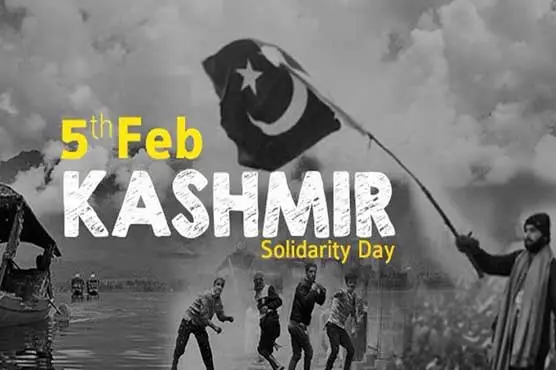Raies Mir
The people of Jammu and Kashmir have been struggling for their right to self-determination over the last seven decades, enduring enormous hardships at the hands of the Indian forces in Indian illegally occupied Jammu and Kashmir. The observance of Kashmir Solidarity Day on February 5th is a reaffirmation of Pakistanis’ unwavering support for their Kashmiri brethren who have made tremendous sacrifices in their quest for liberation from Indian occupation.
The observance of Kashmir Solidarity Day serves as a global reminder of the Kashmir dispute and signifies Pakistan’s continued support for the Kashmiri people.
Since 1991, Pakistanis worldwide have observed February 5th as a day to express solidarity with the people of Jammu and Kashmir who have been struggling and making unparalleled sacrifices for their birthright – the right to self-determination – over the past seventy-five years.
Understanding the historical context of India’s occupation of Jammu and Kashmir, dating back to the partition of the Subcontinent in 1947, is crucial. Kashmir, with its 87% Muslim population, had a natural inclination to accede to Pakistan, but the designs of its then Dogra ruler, Maharaja Hari Singh, led to the state’s occupation by India on October 27, 1947, disregarding the partition plan and the wishes of the Jammu and Kashmir.
After the abrogation of Article 370 and 35-A, on Aug 2019 the Indian government stripped the people of Jammu and Kashmir of their political, religious, business, and legal rights, weakening their economy. Despite these brutal acts, the BJP Indian government has failed to suppress the sentiments of Kashmiris and their demand for the right to self-determination, which is considered the rightful way for oppressed people to live in freedom.
The BJP-led Indian government, in blatant violation of UN resolutions and international law, revoked the special status of IIOJK, placing the territory under military and police siege.
The people of occupied Jammu and Kashmir, through their unwavering commitment to the cause of self-determination and liberation from India’s illegal occupation, have not only inspired Pakistanis, with whom they share cultural, religious, historical, and geographical bonds but also garnered support from conscientious and peace-loving societies worldwide.
Hence, February 5th serves as a day to acknowledge the Kashmiri people as symbols of the struggle for justice, peace, truth, and basic human rights.
The Indian troops, paramilitary and police personnel have martyred over ninety-six thousand Kashmiris including women and teenager in Indian illegally occupied Jammu and Kashmir.
The text cites statistics of human rights abuses, including killings, custodial or fake encounter deaths, civilian arrests, and structural damage.










